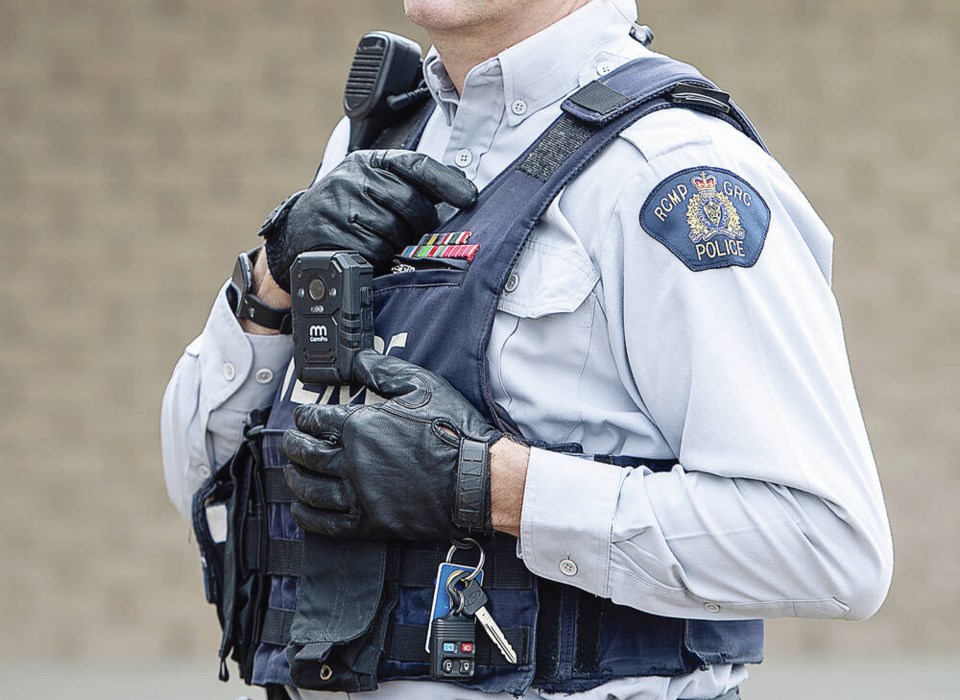The coroner’s inquest into the death of Myles Gray has raised a question too long put aside. Why have B.C.’s police forces not adopted body cams for front-line officers?
Gray died in the course of a violent confrontation with Vancouver police officers. They were called after he yelled at a woman watering flowers in her garden, then sprayed her with a hose.
The 33-year-old had previously shown signs of bi-polar disorder, and possibly also manic behaviour.
Gray refused to co-operate with the first officer on the scene, and fled to the rear of the house. There, when police backup arrived, a massive struggle began.
Several officers were injured, but the damage sustained by Gray was life-ending. He suffered a broken nose, a fractured eye socket, brain hemorrhaging, and a ruptured testicle. He died at the scene.
Last week, the coroner’s jury classified Gray’s death as a homicide. Among their recommendations, they proposed that the Vancouver Police Department equip its patrol officers with body cams.
Notably, this is also the position of Public Safety Minister Mike Farnworth, who’s on record as encouraging municipal police forces in B.C. to adopt this technology.
So too is Ronald MacDonald, head of the Independent Investigations Office of B.C., the civilian authority that oversees complaints of police misconduct.
Likewise the RCMP, which is issuing between 10,000 and 15,000 cameras to its detachments country-wide.
Yet of the 11 municipal forces in the province, only one — Delta Police Department — has taken this step.
There are legitimate concerns about the invasion of privacy that comes with video monitoring. The B.C. Civil Liberties Association, among others, has raised this issue.
Yet Canada’s privacy commissioner has found that body cams can be used if appropriate measures are taken to protect inappropriate release of personal information.
Against these concerns, the arguments in favour are weighty.
The coroner’s jury found that Gray’s death must be considered a homicide after struggling through reams of contradictory testimony.
Their job was made more difficult, if not impossible, by the fact that union officials allegedly instructed the officers involved not to take notes. That in itself should lead to disciplinary measures.
But how much simpler would the process have been, had video footage been available. And we can take this argument a step further.
If excessive force was indeed used to subdue Gray, how likely is it this would have occurred had the officers known their every action was being recorded.
Body cams are not a cure-all. Experience south of the border, where numerous police forces deploy this equipment, illustrates its weak points.
In the kind of tumultuous scene that took place in Gray’s arrest, images may be distorted, faces too fuzzy to identify, key events missed in the physical melee.
Even so, the very fact that, in theory at least, every action is being recorded should act as a deterrent to police misconduct.
And this issue is all the more pressing because law enforcement agencies are under fire from allegations of excessive violence, mistreatment of prisoners, and racially motivated acts.
To the extent that at least some allegations of mistreatment may be unfounded, the use of body cams would likely go some way to restoring public confidence.
The Canadian Privacy Commissioner cites a study which showed a significant decrease in complaints of police violence when body cams are worn.
Farnworth has gone no further than recommending the use of this equipment. That falls short of his duty.
At a moment when public support for the police is at a low, the minister needs to step up and require the adoption of body cams.
>>> To comment on this article, write a letter to the editor: [email protected]



